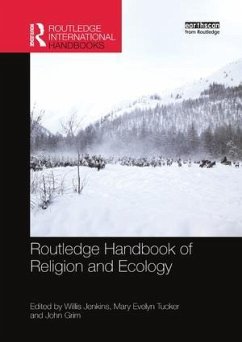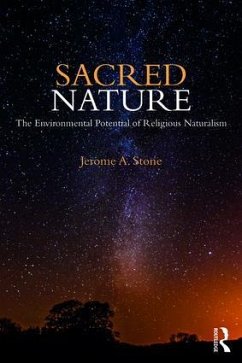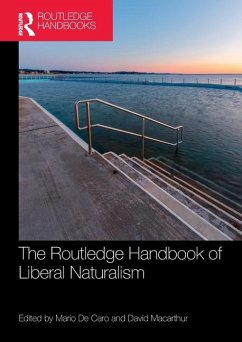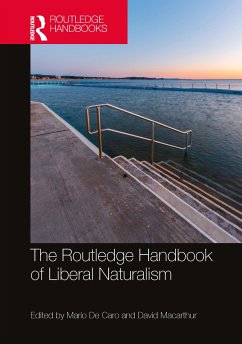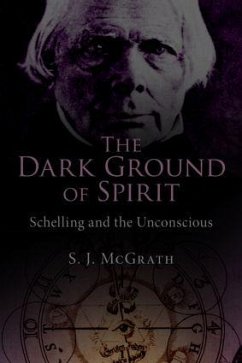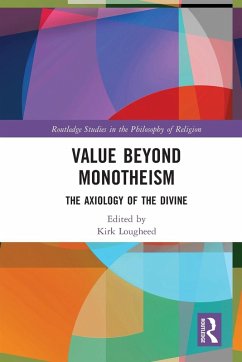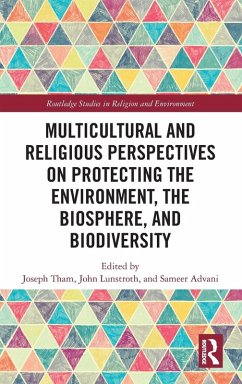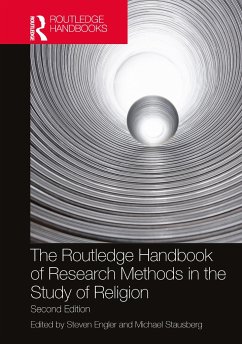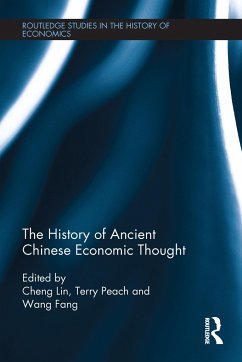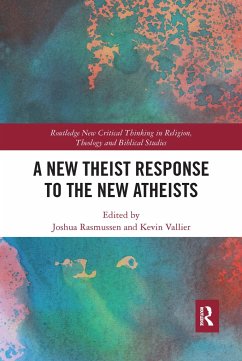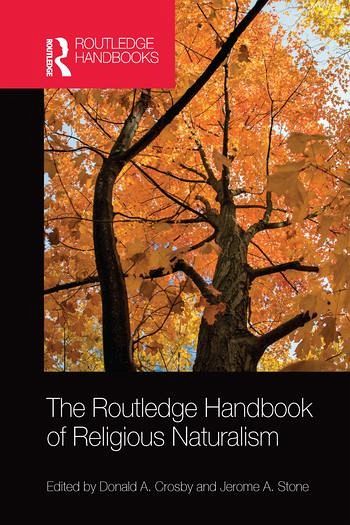
The Routledge Handbook of Religious Naturalism
Versandkostenfrei!
Versandfertig in 6-10 Tagen
50,99 €
inkl. MwSt.
Weitere Ausgaben:

PAYBACK Punkte
25 °P sammeln!
Ecological crisis is being widely discussed in society today and therefore, the subject of religious naturalism has emerged as a major topic in religion. The Routledge Handbook of Religious Naturalism is an outstanding reference source to the key topics, problems, and debates in this exciting subject and is the first collection of its kind. Comprising thirty-four chapters by a team of international contributors, the Handbook is divided into seven parts:- Varieties of religious naturalism and its relations to other outlooks- Some earlier religious naturalists- Pantheism, materialism, and the va...
Ecological crisis is being widely discussed in society today and therefore, the subject of religious naturalism has emerged as a major topic in religion. The Routledge Handbook of Religious Naturalism is an outstanding reference source to the key topics, problems, and debates in this exciting subject and is the first collection of its kind. Comprising thirty-four chapters by a team of international contributors, the Handbook is divided into seven parts:
- Varieties of religious naturalism and its relations to other outlooks
- Some earlier religious naturalists
- Pantheism, materialism, and the value-ladenness of nature
- Ecology, humans, and politics in naturalistic perspective
- Religious naturalism and traditional religions
- Putting religious naturalism into practice
- Critical discussions of religious naturalism.
Within these sections central issues, debates, and problems are examined, including: defining religious naturalism; religious underpinnings of ecology; natural piety; the religious-aesthetic; ecstatic naturalism as deep pantheism; spiritual ecology; African-American religious naturalism; Christian religious naturalism; Dao and water; Confucianism; environmental action; and practices in religious naturalism.
The Routledge Handbook of Religious Naturalism is essential reading for students and researchers in religious studies, theology, and philosophy. The Handbook will also be useful for those in related fields, such as environmental ethics and ecology.
- Varieties of religious naturalism and its relations to other outlooks
- Some earlier religious naturalists
- Pantheism, materialism, and the value-ladenness of nature
- Ecology, humans, and politics in naturalistic perspective
- Religious naturalism and traditional religions
- Putting religious naturalism into practice
- Critical discussions of religious naturalism.
Within these sections central issues, debates, and problems are examined, including: defining religious naturalism; religious underpinnings of ecology; natural piety; the religious-aesthetic; ecstatic naturalism as deep pantheism; spiritual ecology; African-American religious naturalism; Christian religious naturalism; Dao and water; Confucianism; environmental action; and practices in religious naturalism.
The Routledge Handbook of Religious Naturalism is essential reading for students and researchers in religious studies, theology, and philosophy. The Handbook will also be useful for those in related fields, such as environmental ethics and ecology.





